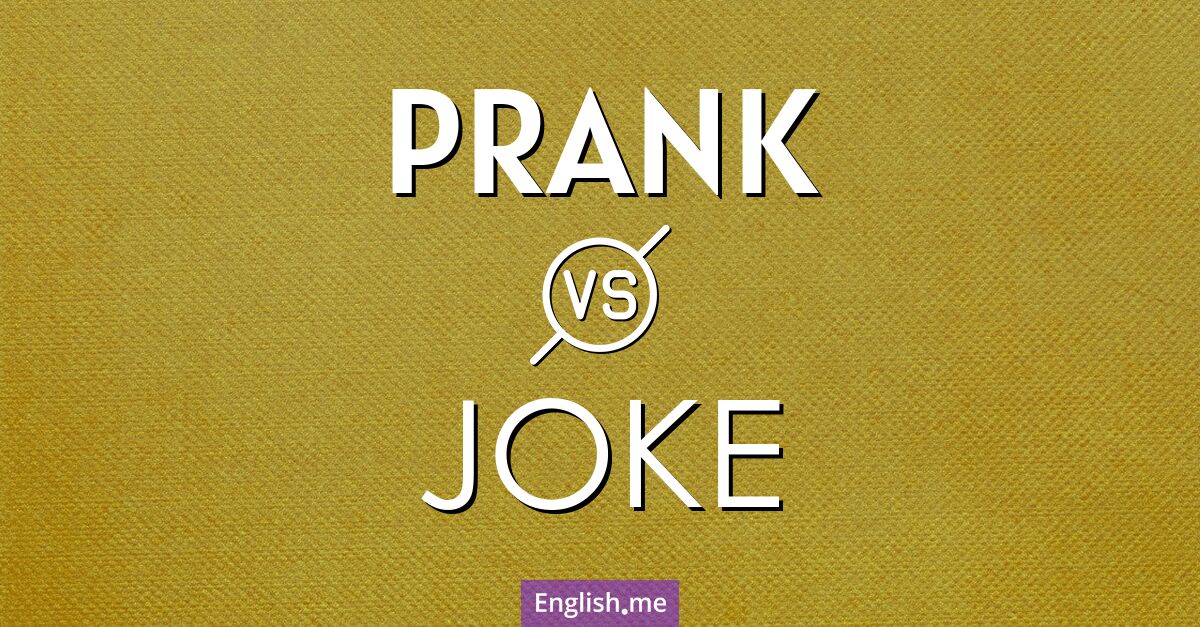From giggles to mischief: dissecting "prank" vs. "joke"
Reviewed and edited by  Lloyd Cooper 05/10/2024, 22:39
Lloyd Cooper 05/10/2024, 22:39
English.me team member

 What is similar?
What is similar?
Both "prank" and "joke" involve humor and are intended to amuse people. They both can be part of entertainment or social interactions aimed at causing laughter or amusement.
 What is different?
What is different?
A "prank" is typically an action or trick played on someone, often involving some form of deception or mischief. It is usually done at someone else's expense. A "joke", on the other hand, is primarily verbal or written and involves storytelling, wordplay, or a punchline designed to be funny, often without targeting someone.
 Which one is more common?
Which one is more common?

 Examples of usage
Examples of usage
Prank- They planned a prank on their friend by filling his room with balloons.
- The prank went viral, catching the attention of millions online.
- He wasn't angry about the prank, but he vowed to get them back.
- He told a joke that made the entire room burst into laughter.
- The comedian's joke about growing up in the city was particularly relatable.
- She often jokes about her cooking skills, saying she could burn water.

 English
English español
español française
française italiano
italiano deutsche
deutsche 日本語
日本語 polski
polski česky
česky svenska
svenska Türkçe
Türkçe Nederlands
Nederlands